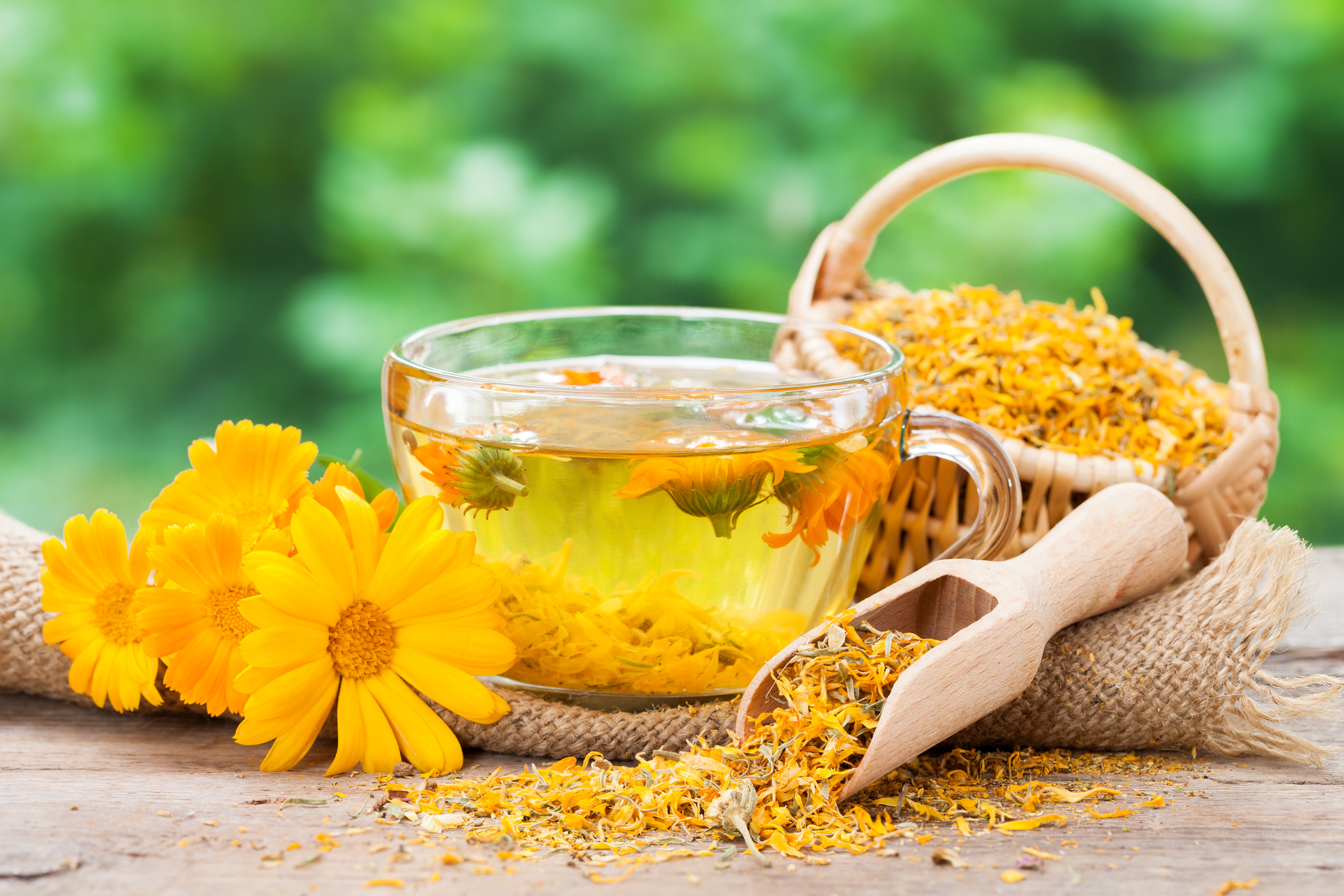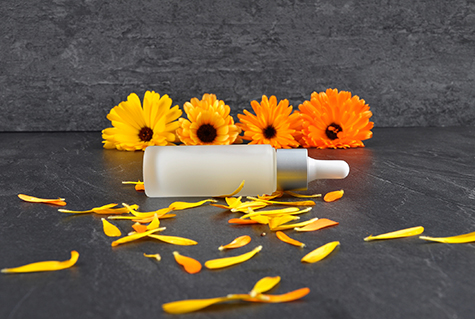Calendula: The Secret Life of Marigolds

You may see it listed on labels as calendula but better recognize its common name: marigold.
These decorative yellow and orange annual flowers are native to Asia and southern Europe. They have a history of medicinal use and calendula is the common name found in supplement form. The main active components that may be health promoting in calendula are antioxidant triterpenoids and flavonoids. In a lab setting, calendula has shown antibacterial, anti-inflammatory, antioxidant, anticancer, and antiviral effects. This extract can lower blood pressure as well as blood sugar. It is sedative and aids in wound healing when applied topically. Preparations from marigold flowers are widely used for the treatment of skin disorders including inflammation, burns, wounds, bruises, rashes and even eczema.
Medicinally, calendula is used for:
- antispasmodic properties
- reducing fevers
- treating cancer
- calming oral inflammation
- anti-ulcer treatment
- wound healing when used topically
Marigold flowers are safe to use in culinary preparations though they may have a slightly bitter taste. They are generally safe to consume in amounts that may be used for decorating or garnishing desserts, salads and beverages. The FDA does list calendula on the Generally Recognized as Safe (GRAS) list when used as a spice or seasoning.
Calendula preparations have the best evidence wen used topically for diaper rash, anal fissures, and other skin issues. Another study on humans found that calendula extract based creams performed as well as common synthetic medication for women with bacterial vaginosis. There is some promising evidence that calendula extract has anti-cancer effects when taken orally. This has proven useful against human melanoma cells. Another animal study showed positive outcomes of calendula extract as a treatment for stomach ulcers. More research is needed to better understand how calendula can be used medicinally though there are some exciting possibilities, especially when used as a topical ointment.
Use caution with marigold and calendula preparations if allergies are present. People allergic to the asteraceae/compositae family including ragweed, chrysanthemums, and daisies should use extreme caution. Compared to other herbals, there are relatively few negative interactions with mediations or supplements but do use caution with central nervous system depressants as calendula may enhance their effects. For this reason, this can make it dangerous when undergoing surgery. Similarly, herbal supplements that have sedative properties like California poppy, catnip, hops, Jamaican dogwood, kava, L-tryptophan, melatonin, sage, SAMe, St. John’s wort, sassafras, and skullcap can enhance the effects of calendula so use caution if combining. Keep in mind that marigold and calendula preparations are very unsafe to use during pregnancy.
What do you think? Let us know in the comments if you have had a positive experience using the calendula or marigolds in your food or as a supplement!
Resources:
Natural Medicines Database. Calendula. https://naturalmedicines.therapeuticresearch.com/databases/food,-herbs-supplements/professional.aspx?productid=235. Updated 11/1/17. Accessed 3/27/18.
Yadav AK, Mishra PK, Jain PK, Rao CV, Tiwari S, Singh V. Investigation of Calendula officinalis whole plant as a gastroprotective and antioxidant in peptic ulcer. Br J Med Health Res. 2016;3(7):67-76.
Pazhohideh Z, Mohammadi S, Bahrami N, Mojab F, Abedi P, Maraghi E. The effect of Calendula officinalis versus metronidazole on bacterial vaginosis in women: A double-blind randomized controlled trial. Journal of Advanced Pharmaceutical Technology & Research. 2018 Jan 1;9(1):15.
Sak K, Nguyen TH, Ho VD, Do TT, Raal A. Cytotoxic effect of chamomile (Matricaria recutita) and marigold (Calendula officinalis) extracts on human melanoma SK-MEL-2 and epidermoid carcinoma KB cells. Cogent Medicine. 2017 Jan 1;4(1):1333218.


